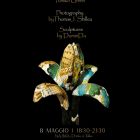The Bank of Italy has blocked all credit and debit card transactions in the Vatican from 1 January 2013 as part of efforts by Italian financial authorities to curb money laundering in the tiny sovereign state.
Italy's central bank refused to approve a license to provide electronic payment services to the Italian unit of Deutsche Bank AG (DBK) – which had been operating the Vatican’s payment services since 1997 – over concerns that the papal state lacked sufficient banking and financial legislation. The Italian banking authority is also believed to have taken the step because the Vatican is not part of the European Union and therefore does not meet the EU common banking standards on vigilance.
The new rules will have the biggest impact on the Vatican Museums which until now accepted credit card payments for its admission fees. Over 5 million visitors spent €91.3 million at the Vatican Museums in 2011.
The legislation will also mean that services at the Vatican's supermarket, pharmacy and post office will need to be paid for in cash. Cash withdrawals from machines operated by the Vatican bank IOR are not affected however.
A spokesman for the Vatican expressed confidence that the credit card restriction would be short-lived and that a resolution could be reached soon.
Last year the EU money-laundering watchdog Moneyval called for greater transparency and tougher anti-money laundering measures by the Vatican Bank.

















